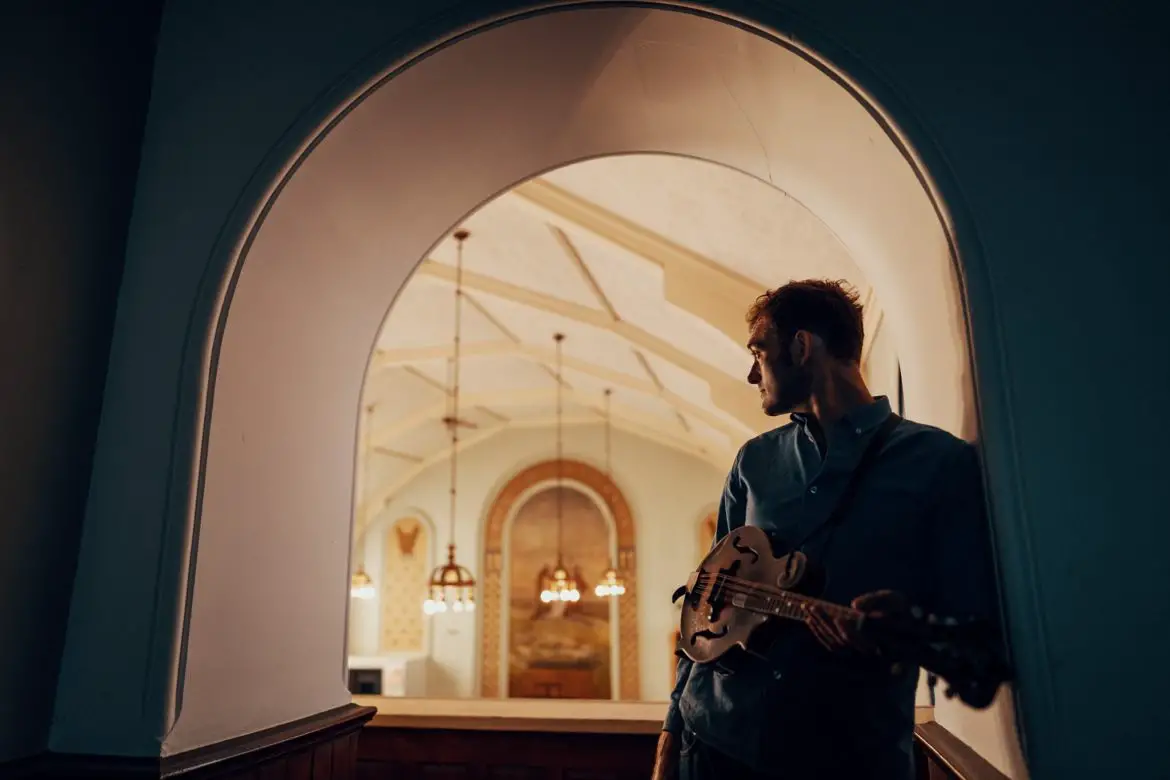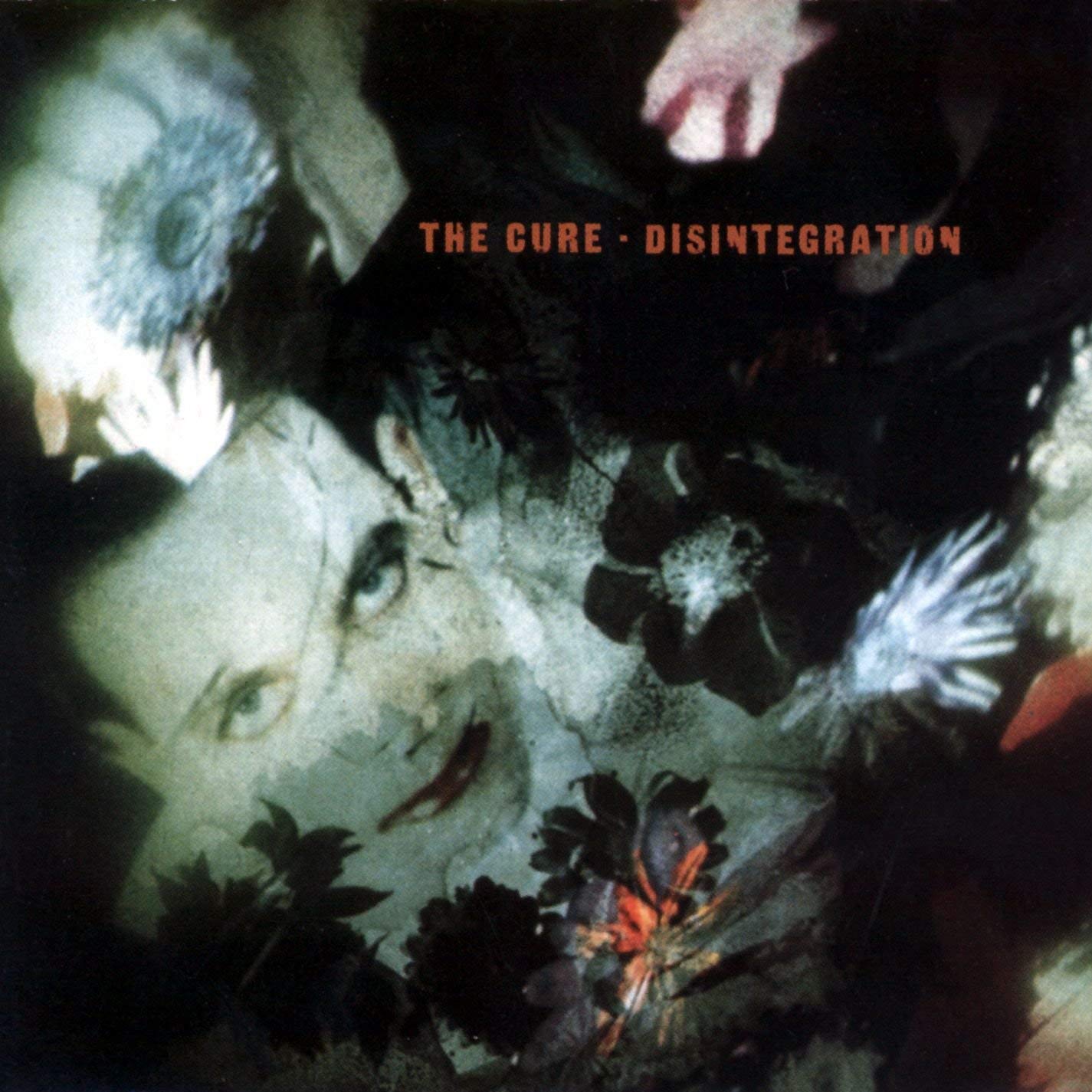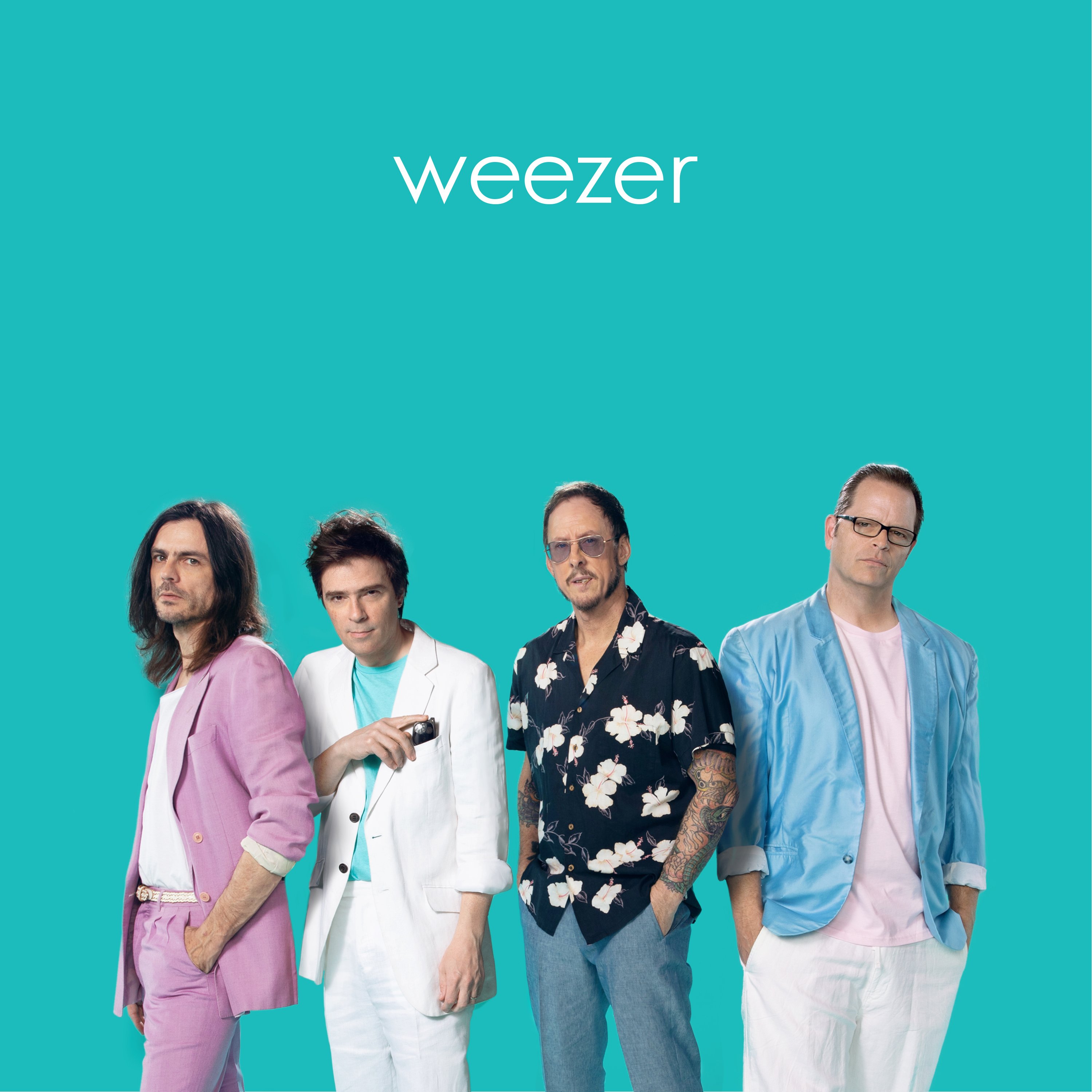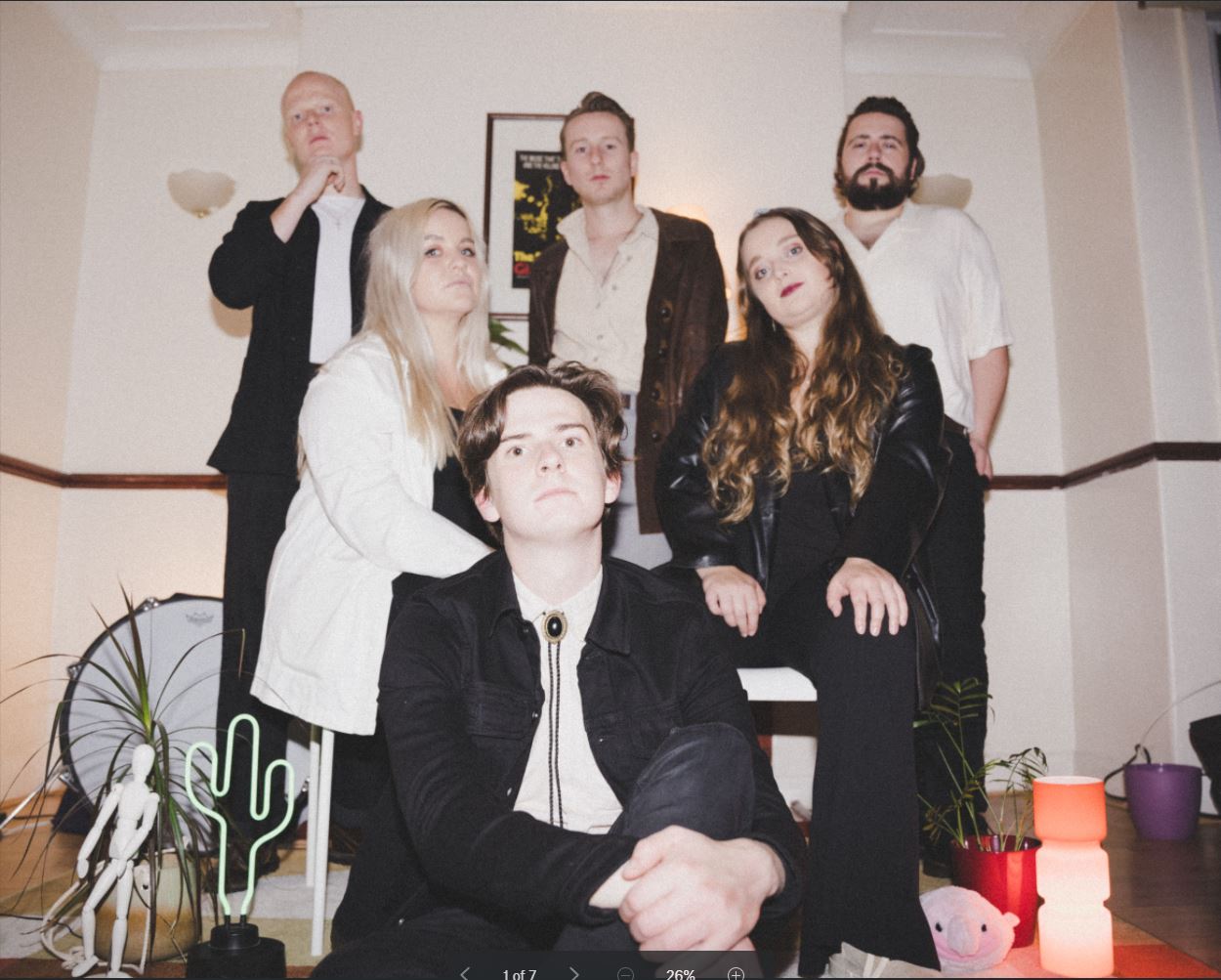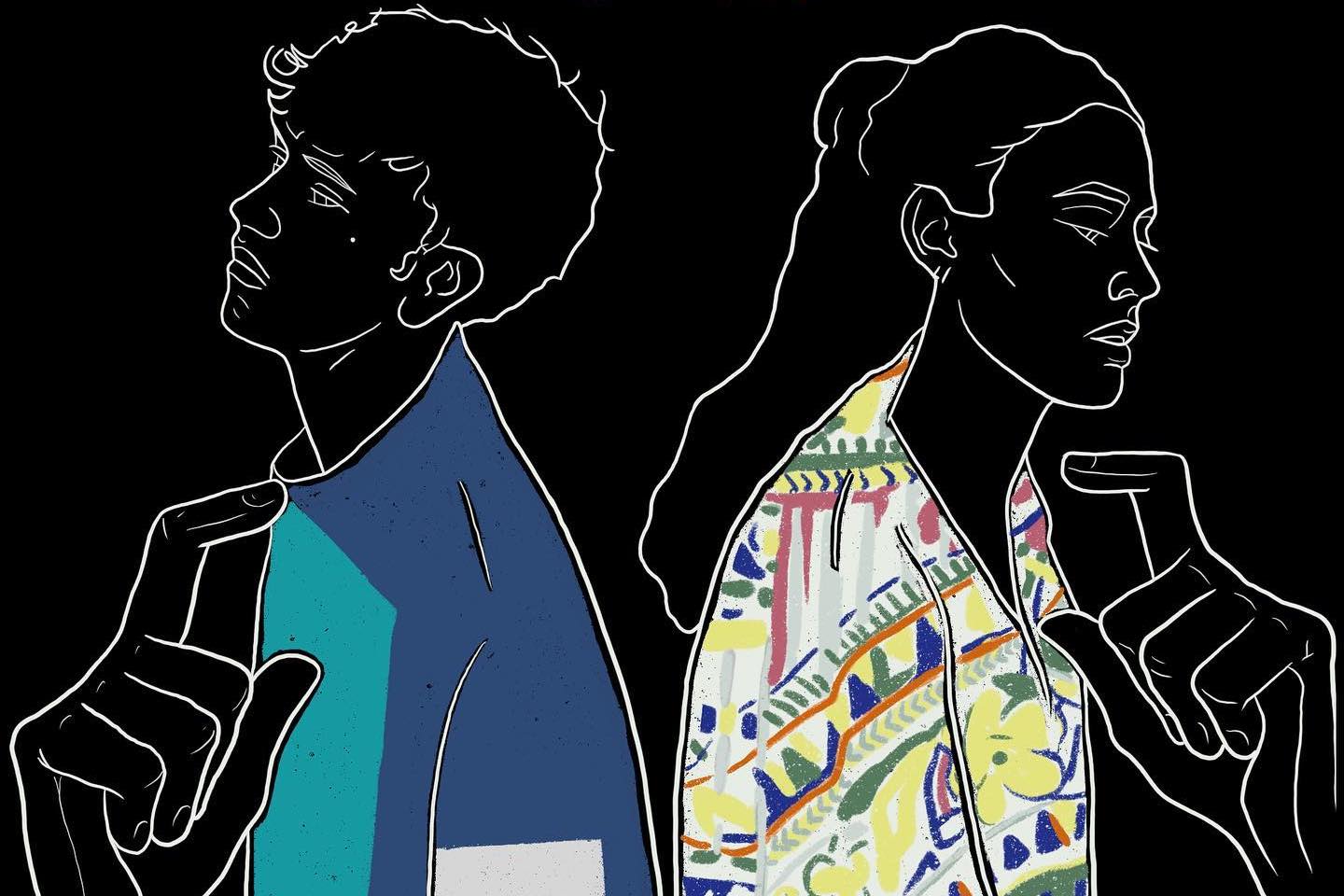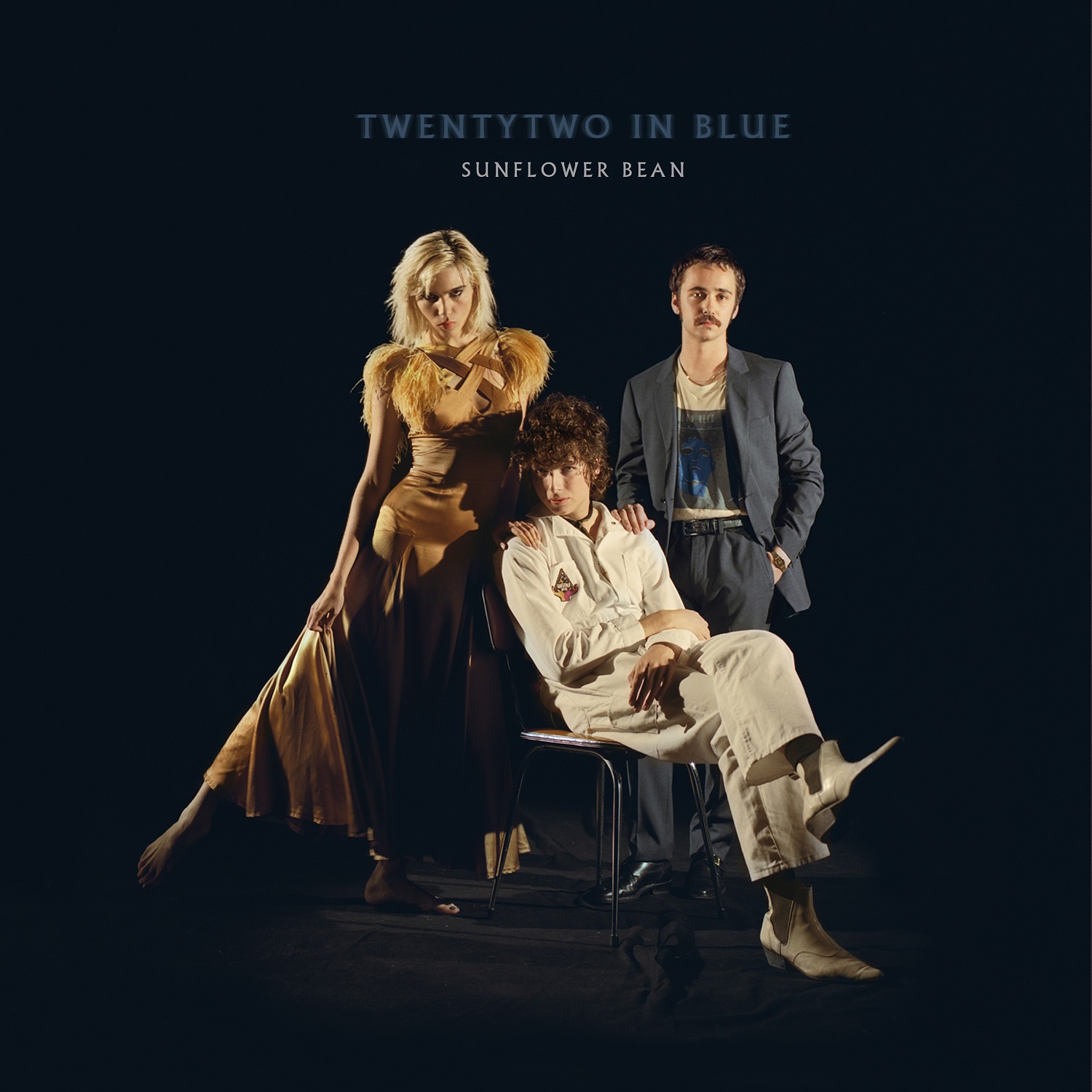Chris Thile’s first true solo record is a reflection on communion and spirituality, asking listeners to open their ears and minds.
Stream: ‘Laysongs’ – Chris Thile
When you’re in the middle of participating in communal music making, it’s kind of impossible to do anything but rejoice in it.
When you search for Chris Thile as a solo artist, you’ll find a discography that is wide and varied – collaborations familiar and new, eclectic stylings from a constantly curious and expansive musician – but not once in his 27 year long recording career is there a solo record exclusively featuring Thile and his mandolin. Like many others unable to see their bands during the pandemic, Thile saw lockdown as an opportunity to turn inward – to finally make the solo record he’d always wanted to make.
But realizing that “the reason to make a solo cannot be because [he] was not able to make music with other people,” Thile took the advice of Nonesuch’s Chairman Emeritus Bob Hurwitz and turned to God. Across most of the records Thile’s created or been a part of are questions of spirituality and a sense of reverence. Rarely is anything answered, and rarely is the object of the reverence defined — but anyone with even a passing knowledge of Thile’s work is aware of his complicated relationship to Christianity, and how he frequently uses his music as a conduit for spiritual seeking.

Laysongs (out June 4, 2021 via Nonesuch Records) lays these themes bare; the album is one of complex layers. It acts as a portfolio of influence and philosophy, pulling from the Bible to Greek mythology to C.S. Lewis to Leonard Cohen and Buffy Sainte-Marie to Thile’s own childhood in a Kentucky church.
Musically, it also traverses a wide range of sound and influence. Though Thile is most often thought of as a bluegrass musician, the only real nod to bluegrass here is the album’s final track, a languid cover of Hazel Dickens’ “Won’t You Come and Sing for Me.” The rest of the album contains a virtuosic Bartók performance, meticulous improvisations, a three-part suite to rival “The Blind Leaving the Blind” from Punch Brothers’ first album, but most importantly, the gaps between — intimate, sparking silences that are catalytic rather than respites. The album’s recording location, a large, converted church, adds to the sense of scale. Laysongs, though incredibly intimate, can also feel massive in moments. “God Is Alive Magic Is Afoot,” Thile’s “improvisation on [Buffy Sainte-Marie’s] improvisation” of Leonard Cohen’s poem, feels almost tangible in its sparse, elastic instrumentation. It builds to a wild peak, Thile strumming with increasing intensity just before uttering the words, “And time itself, the magic length of God,” when suddenly there is a break. The mandolin ticks on without tone, fading into a cavernous silence. There is a question there, but Thile does not answer it; only asks that you lean in to hear its shape.
— —
:: stream/purchase “Laysongs here ::

A CONVERSATION WITH CHRIS THILE
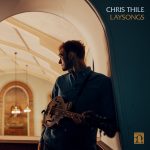
Atwood Magazine: I am so enamored with the concept of this album. I particularly love what you said about the idea of communion or singing together being the only thing you miss from organized religion. Can you expand on this idea and how you came to making this particular record?
Chris Thile: I’d been wanting to make a truly solo solo record for a long time, but the allure of collaboration has been too much to resist. I perform solo a fair amount and have had more and more ideas about how I would want an eventual solo project sound. But when you can hang out with your fellow human beings in a musical context, it’s difficult to resist, you know? And the next thing you know, you look at your schedule, it’s all full. So last year about this time, as I was just seeing this snowy white clear schedule, nothing coming up, nothing to do, I was like, “Wait, I can finally make a solo record.” But then I thought to myself, “The reason to make a solo record cannot be because I was not able to make music with other people. That’s not a good reason to make a solo record.” I started thinking that this solo record might be a great time to think about the importance and potential pitfalls of experiencing community, particularly via music making. The more I thought about this concept in the context of my religious upbringing and the late night conversations with our demons that I feel like a lot of us have been having over the last year and change, all of those thoughts started to morph into what you’re hearing on Laysongs. When you’re in the middle of participating in communal music making, it’s kind of impossible to do anything but rejoice in it. On Laysongs, there’s a lot of questioning going on, and I do think overall, music is better at asking questions than it is at answering them.
I think about the context in which I have operated as a member of my community, and I don’t love everything that I see. I feel like I’ve been unintentionally exclusionary at times. So these beautiful moments that I talk about on this record, I ask, who am I opening those moments to? People in my inner circle, people who think and feel and look just like me? We talk about, “Everybody deserves a chance, we should all be equal,” and yet, our communities are often very monochromatic – ideologically, racially, and everything else. We even start to build walls around these communities, wherein we’re extolling the virtue of knocking down walls. So all this stuff about my religious upbringing that I have ostensibly left behind, I feel like I’m still sort of engaging with as a member of an ostensibly more open-minded community. And I think that’s the kind of thing that I don’t know that I would have noticed without this context [of working alone]. In a way, making a solo record can be a microcosm of how it’s felt to be alive during this time, holding everything at arm’s length and taking a good hard look at it.
This record almost feels like a portfolio of influence. Was this something you laid out prior to writing and recording or was it more an act of discovery along the way?
Chris Thile: I’ve always gravitated towards religious imagery. I think a brief survey of my lyrical activities would reveal a great deal of religious imagery, almost reflexive, you know, like, “Oh, that’s just the kind of stuff you put in songs” [laughs]. With that Leonard Cohen poem — but specifically Buffy Sainte-Marie’s musical performance of that Leonard Cohen poem — I ran into that while curating stuff for Live From Here. I filed that song away going, “Oh my gosh, what is that?” Or like, that Hazel Dickens song has hit me like a ton of bricks since I was too young to know why. It’s “Won’t you come and sing for me,” and not even with me — that sentiment of, “I just want to listen to you.” She’s saying it in church, but she’s not saying it to God. She’s not even necessarily saying it to friends because she says, “We stood shaking hands and singing a song” – you don’t necessarily know the people you’re shaking hands with that well. At the end of her life, what she wants to do is hear other people sing, so that came whirling back into my mind like, “How would I interact with that song and the Buffy Sainte-Marie performance?” I started revising various things that I’d written in my head and then working up these tunes all as a unified gesture. That piece in the middle, “Salt (in the Wounds) of the Earth,” struck me as being the centerpiece of [the record]. It’s a meditation on how our desire to feel good about ourselves is used against us to create that damnably isolating sense of superiority that prevents us from engaging in community in a healthy way and living our lives to the fullest, most productive, helpful extent.

There are so many layers to “God Is Alive Magic Is Afoot.” There’s your version, based on Buffy Saint-Marie’s version, based on Leonard Cohen’s poem. You’re coming at this from the lens of Christianity, while Cohen was Jewish. Did all these layers inform your own arrangement?
Chris Thile: Yeah, I just love how comprehensive it is. I love [Cohen] conflating the idea of God with the idea of magic and time and flesh. And then the sense of mystery, it’s there in his, but I love that Buffy just like, triple underlined and capitalized the mystery of it all. That thought of, what madness leads us to feeling like we know anything about what all is going on? Why do we not marvel over the magic when we see it? Why do we try and explain it away? Why do we discount other people’s attempts to explain it? Why do we belittle other people’s wonder at it? Why do we do that? Why do I do that? I do that all the time, and on both sides. When we happen to stumble across something good, we can do two things: there’s a beautiful side of humanity, the first impulse of which is to share that thing. And then there’s the dark side, where the first impulse of which is to put it in a safe. So I love how comprehensive that poem is, and then how alive Buffy Sainte-Marie makes it feel. My version is sort of an improvisation on her improvisation.
What, to you, is magic? Where does it collide with spirituality?
Chris Thile: For me, it’s all wrapped up in the why of all of this. I don’t like to believe it’s an accident. I’m kind of 50/50 on whether it is or not in my head. But I find myself happier and I think I’m more productive when I ponder the possibility of there being a reason for all of this, and the little snippets of evidence to that end are what seems magical to me. There’s the work of my fellow human beings and the beauty of the natural world, and the best examples of us interacting with that in a meaningful way seem very magical to me — like good wine, for instance. It doesn’t feel random to me. But there are lots of things that do feel random, like how much suffering there is. How many people never have a chance to drink clean water, much less wine. Why? That makes things feel random and meaningless. It’s the clash between those examples of human and natural beauty and then examples of human and natural ugliness. I’m just trying to be like Hazel Dickens in the last song — I’m trying to turn this whole experience into an exercise of listening and observing better.
So speaking of wine, I’m really interested in “Dionysus” because I feel like organized religion kind of opposes anything bacchanalian – he feels like a bit of an outlier here.
Chris Thile: I know it seems trite, but I really do look at great wine as evidence that humans can interact with the world in a positive way. Conversations that I’ve had with wide open-eared people late at night with a good bottle of wine are probably the biggest positive influence in my life. I think we all, in our various ways, go through kind of a slow motion Wizard of Oz transformation from black and white to color, and a lot of that process tends to speed up a little bit in conversation with those kinds of people over a good bottle of wine. So while I try and keep how destructive alcohol can be at the forefront of my mind, making sure that I keep the fear of God in me, so to speak [laughs], that is a major force for magic to me. Again, like a late night hang with a good friend and a good bottle of wine can feel like a bubbling cauldron in that scenario. It’s hard for me to not attach spiritual significance to it.
And then with “Ecclesiastes,” I know this book of the Old Testament is really disputed in terms of its meaning. It’s either “everything is meaningless” or the spiritual embodiment of YOLO.
Chris Thile: Both, why can’t it be both? [Laughs]
As a Jewish person, it’s so funny to me because the Hebrew interpretation seems to be the most classically cynical thing.
Chris Thile: Right, “everything is meaningless, everything is striving after wind.”
I don’t think nihilism has to be inherently negative – like, sure, everything is meaningless, so why not create something beautiful?
Chris Thile: It’s a slippery slope. I feel exactly the same way, but then when people do beautiful things around me, I start attaching meaning to it [laughs].
So which side of interpretation do you fall on?
Chris Thile: You know, whoever wrote that is my people [laughs]. I just love what they’re trying to do, and all that oscillation. People are fond of saying, “We contain multitudes and so does the world.” Truth contains multitudes. The more I observe, and the more open I let my ears become, the more sides to everything I see. I feel like the book of Ecclesiastes is a person who is diving into the fact that every aspect of living contains multitudes and that something could simultaneously be good and meaningless. So the author says, “It is good for a man to eat and drink, and to take pleasure in his work,” and then a few verses away from that is going to be another “Everything is meaningless, everything is striving after wind.” I can relate to that so hard. Maybe my cycle goes in the reverse order — everything is meaningless, it’s all striving after wind, and then I see something beautiful and go, like, “Wait wait wait, but maybe…” [Laughs]

Tell me about the church you recorded these songs in. How did that space inform the music itself?
Chris Thile: Most of [the arrangements] were done, although stuff like the performance of the Buffy Sainte-Marie/Leonard Cohen tune was very much a product of being in that space. When you’re improvising, you have to be in the moment, and you have to be in the space that you find yourself in. You have to really hunker down. Any of the improvisation on the record is very much a product of that space. There was such a perfect balance of intimacy in that space. Sometimes you play in a big, beautiful church, and the sound is incredible, but there’s no sense of intimacy. You can’t actually hear the little nuances. As a mandolin player, so much of my music is contained in these tiny little gestures. I need people to be able to hear those things for what I’m doing to make sense.
Usually, I err on the side of a very intimate recording environment, so it was a real delight for me to find this space that had both the sense of clarity that I need to whisper at people and the sense of scale for things to get a little bigger. In terms of my mindset, to be in a space that was once a church and is now a recording studio was a pretty good metaphor for what I’m trying to say on this record. The line of questioning that I’m indulging in is very much like getting to go back into my reeling head as an adolescent in Christian Community Church of Murray, Kentucky, going, “Is this real? Am I going to hell for questioning its reality? And am I going to hell for thinking that the girl two pews over is real cute?” [Laughs] It was amazing to be in a space that really looked and felt and sounded like that.
Chris Thile: It was a good and welcome and occasionally relieving challenge. I think that sometimes I overwrite on the mandolin — writing things too specifically for my instrument might even be one of my main compositional Achilles heels. I find myself needing to unwrite things and make sure I’m taking myself off my instrument and allowing my inner ear to drive the composition. In a way, this was an opportunity to turn a weakness into a strength and really indulge in some highly mandolinist music. So, yes, I think that was actually one of the easier parts of the experience. The biggest challenge doing this kind of thing is figuring out what you’re actually doing, as opposed to your intentions. No one hears your intentions. Well, that’s not entirely true. When you’re doing something with everything you’ve got, people can hear that. But specific things that you hear in your inner ear — maybe you hear them so loudly that you don’t actually do them. People aren’t hearing the stuff that can have to do with a beat. You hear the beat in your head, and you’re playing everything off of that beat. And if no one hears that beat, you better be real sure that what you’re playing is good by itself — that it’s structural enough to give people something for their ears to stand on. That’s the real work of making solo music; it’s to make sure that whatever is foundational to the work is actually in the sound and not just in your head. Chris Thile: That was more intuitional than some of the rest of this stuff. I guess intuition factored into the selection process at every turn — but I’ve loved that Bartók solo sonata for a long time, and listening to that fourth movement has always reminded me of the devil scenes in Bulgakov’s The Master and Margarita. The Devil shows up in Moscow and puts on this magic show, and for whatever reason, the fourth movement of Bartók’s solo violin sonata has always reminded me of the chaos of that scene, like the devil kind of delighting in his power and the fear and the chaos. So late one night, I was listening to the Bartók again, and thought to myself, “Maybe I should try and learn this thing and put it on here as an interlude, but one that actually deepens the overall sense of what’s going on.” Then another voice in my head said, “No, you’re crazy. This is a self indulgent idea. People are just gonna be scratching their heads, like, what the hell is this.” I sent [the idea] to my wife [Claire Coffee], and when I woke up the next day, I had an email from her saying, “This is amazing. You have to do this,” which was amazing for me, because she doesn’t have a musical background and so she’s just reacting to the piece. Working with my wife as a producer on this was invaluable in so many ways. She has an amazing grasp of narrative from her years of acting and writing and a lot of editing for friends’ writing. It was also her idea to put it right after “Salt (in the Wounds) of the Earth.” My fear about that piece would dictate like, “Let’s all exhale. Play something very nice and very right down the middle.” But she’s like, go harder. It was such a good call and I listen now and it’s like the Devil himself does a little magic show at the end of “Salt,” a la The Master and Margarita. Chris Thile: Honestly, it’s probably like, are we asking enough questions? Are we really listening to the answers we hear from our fellow human beings? I think that’s what I’m asking myself: Am I asking the right questions and am I really listening to the answers? Or am I just talking more after I asked the question? When I ask questions, am I like an interrogation officer, manipulating the responses in a way that confirms my preconceptions about the person that I’m talking with? That’s the diabolical instinct, to make yourself feel better about yourself in comparison to other human beings. I think the way to work against this is to keep asking questions sincerely and listen to people’s answers. — — — —
This is your first album with just you and your mandolin. What was it like to scale these arrangements in such an intimate way? Was that a challenge?

How does the Bartók fit in here?
I often ask what people want listeners to get out of a record – I feel like I should ask you what questions you hope listeners come away with. If there was a central question to this record, what would it be
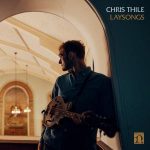
Connect to Chris Thile on
Facebook, Twitter, InstagramDiscover new music on Atwood Magazine
? © Josh Goleman
:: Stream Chris Thile ::

